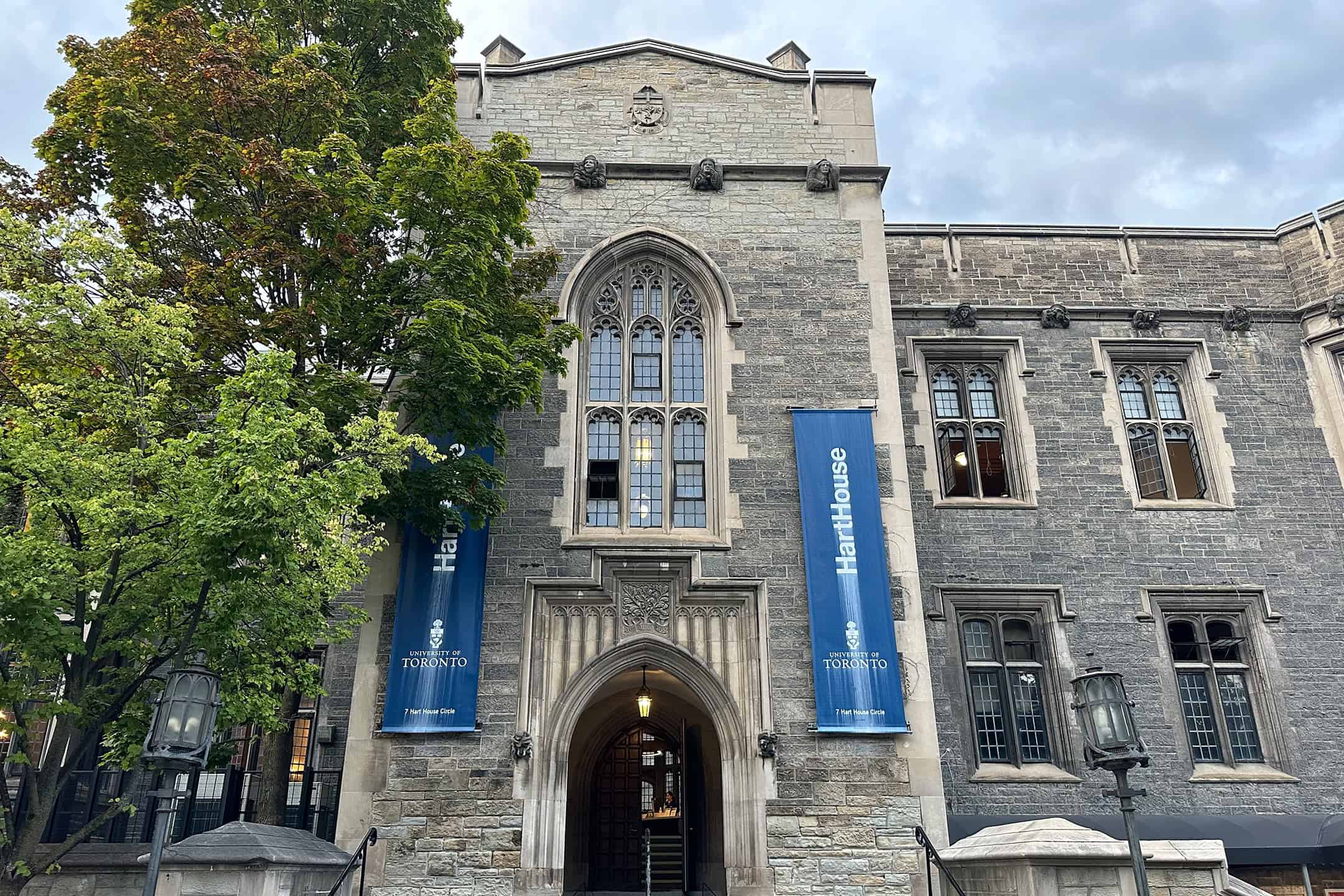On September 19, the Hart House Student Debates and Dialogue Committee — which holds panel discussions or keynote sessions for students to engage with invited speakers — hosted a moderated event featuring Mark MacKinnon, The Globe and Mail’s senior international correspondent. MacKinnon shared his experiences reporting on the Russia-Ukraine war during the discussion.
With a focus on Eastern Europe and the Middle East, MacKinnon has documented some of the most significant geopolitical events of the twenty-first century, particularly power dynamics, as seen in his coverage of Russia’s invasion of Ukraine.
MacKinnon’s work also explores the experiences of individuals affected by wars, the strategies of political leaders, and the shifting international alliances.
MacKinnon on the Russia’s war on Ukraine
Tensions between Russia and Ukraine have been ongoing since 2014, beginning with Russia’s annexation of Crimea and the subsequent conflict in Eastern Ukraine. On the front lines during the escalations of 2022, MacKinnon observed the early stages of the full-scale invasion.
He recalled staying at a Radisson hotel in central Kyiv with his colleagues from The Guardian, when the war began. “My colleagues and I, just like everyone else, thought that it would end quickly,” he said. “And we had a deal that whenever [war started] we would stick together.”
While staying in Kyiv, MacKinnon witnessed the first wave of cyberattacks charging five Russian intelligence officials and a Russian civilian with conspiring. Fearing arrests by the Russians, MacKinnon and his colleagues left the city.
“We got into a car with Oleg, who was a former wrestling champion in Ukraine,” MacKinnon recalled his escape. The journalists then moved around Ukraine for a couple of days. Eventually, they found temporary refuge, enabling MacKinnon to continue reporting on the evolving situation on the ground.
“It felt very obvious at that moment that the Russians [were] closing in,” he recalled the early days of the war. “[We] could hear the Ukrainian artillery. [We] could hear the Russian airstrikes coming closer, closer to where we were.”
He noted that after his most recent trip to Ukraine earlier in September, “there’s still not a peace process that I can see any Ukrainian leader accept[ing].” MacKinnon said he feared the war could continue for years.
Finally, he mentioned that he’s been banned from entering Russia since April 2022 because of his affiliation with The Globe and Mail, which has also made it more difficult to stay in contact with his previous sources.
Documenting the evacuation of Afghans and Ukrainians from Kabul
One of MacKinnon’s most notable experiences during his 26 years at The Globe and Mail was documenting the complex evacuation of Afghans who had previously worked for the Canadian government and military from Kabul in September 2021.
His years of reporting on Eastern European conflicts had helped him build long-term relationships with Ukrainian officials, enabling him to communicate with the Ukrainian military at the time of the evacuation.
MacKinnon said that during that mission the Canadian and American governments assured journalists that they were going to help with evacuations. However, the mission required soldiers to take enormous risks to get near the Kabul airport, which made the Canadian and American plans impossible.
The Ukrainian military, however, continued their efforts to rescue foreign nationals from Kabul.
MacKinnon noted that “for Canadian… leaders, the idea that a soldier might be injured or killed going out into the crowd was too high to tolerate.”
“For Ukrainians, who at this point have been at war in their own land… it was simply another day at court,” explained MacKinnon. “They knew this mission could go wrong. But for a country at war, they understand that sometimes doing the right thing requires taking a little risk, and I think that Western leaders have lost that.”



No comments to display.